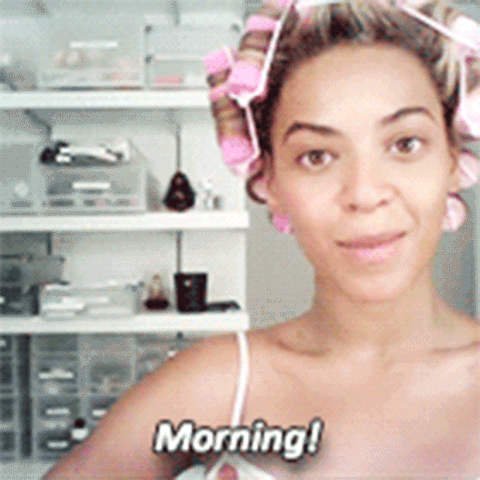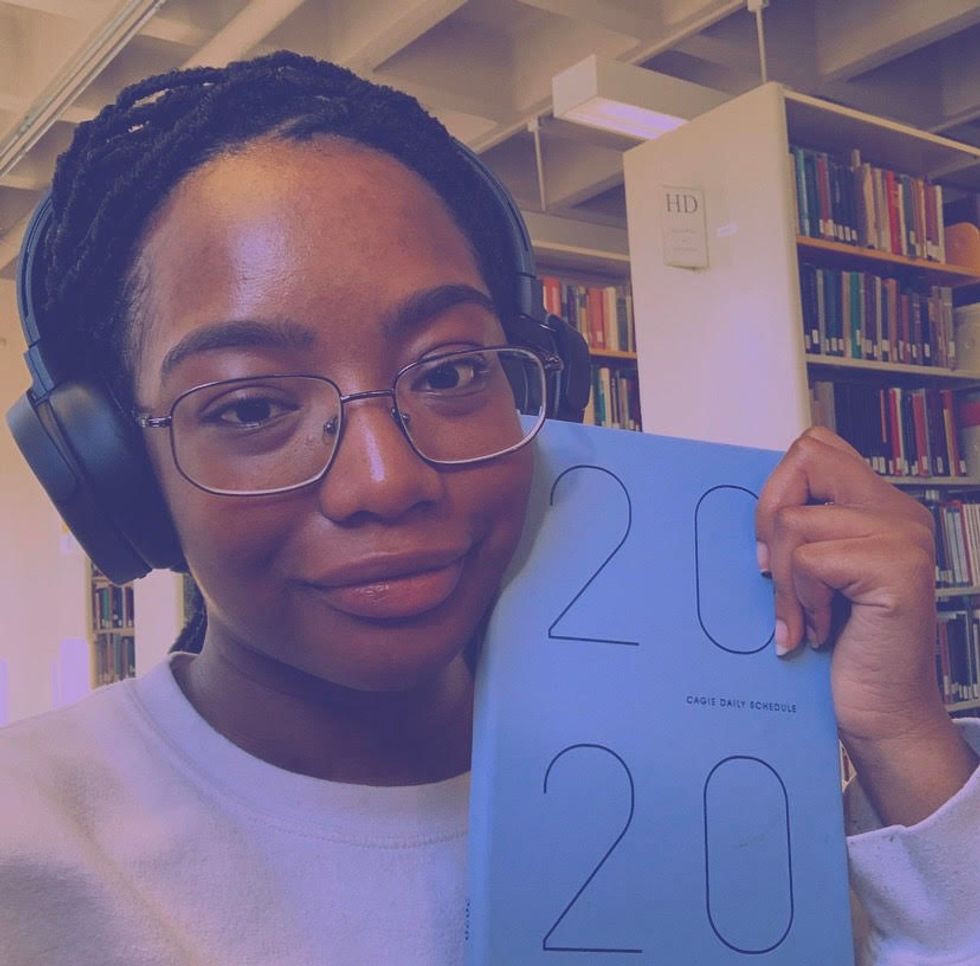At the end of 2019, I decided to embrace the process by focusing on habits that will get actually get me to my goals instead of fixating too much on the goals themselves. For me, organization reduces stress and keeps me healthy, both physically and mentally. This is how I'm trying to get organized to have a better year in 2020.
Having a morning routine

For me, the most important part of my day is the morning. If I have a good morning, I'm probably going to have a good day. I established a morning routine by simply changing a few things about the morning routine I already had. For example, I had a bad habit of getting on my phone right after I woke up every morning. (Okay, okay, I'm still working on it.) In order to break a bad habit, you have to replace it with a good one. So I decided to read every morning instead of going on my phone. Not only is this better for your brain, but I feel better knowing I got some reading done for class.
Having a night routine
Having a good night routine is what sets the tone for the next day. If I get what I'm supposed to get done and get to bed on time, I'm much more likely to get up the next morning in a good mood. I'll actually be motivated to get out of bed instead of hitting my snooze 20 times and getting up at the last possible minute. I can really feel the difference between four to six hours of sleep and eight -- in my energy levels, ability to focus, and mood. Like my morning routine, my night routine also includes reading instead of falling asleep with my phone in my hand. It also includes journaling for five to ten minutes about how my day went. This helps me to keep track of my mental health, so I'm more likely to be able to identify if something's going wrong.
Tracking my habits
Sean Covey once said, "Depending on what they are, our habits will either make or break us. We become what we repeatedly do." Whether or not you intend it, you already have many habits, whether they be good or bad. So why not try to change the bad habits into good ones? As I am working to do just that, tracking my habits just helps me to have an accurate depiction of how well I'm doing.
Keeping track of what I eat
This one it's really important to me as I want to not only lose weight this year but do so by actually making better food choices. Tracking my food helps me to keep track of calorie intake and see how balanced my diet has been. I also can easily identify "bad" and "good" food days. A "bad" day might be when I overeat, or engage in emotional eating. If I know what causes me to emotionally eat I know how to prevent it from happening again.
Actually using my planner
If you have a planner, you might know what it's like to go days, or even weeks, without writing anything in it. That's what happened to me multiple times last year, but I'm making an effort this year to actually use my planner. Not only do I use the daily section for what I need to get done that day, but I use the monthly calendar to track tests, deadlines, club meetings/events, and appointments. Being able to see everything at once just takes away so much stress, as I don't have to constantly second guess myself on when something is coming up.
Organization isn't about trying to be perfect, it's about trying to be a little better than you were yesterday. It's also a form of self-care. I'm much less likely to get overwhelmed and anxious when I know exactly what I'm supposed to be doing and when. It also helps me to avoid getting into a rut where I get nothing done and then beating myself up for it. Just taking the effort to establish routines and healthy habits makes your life just a little bit easier -- and who wouldn't want that?

















